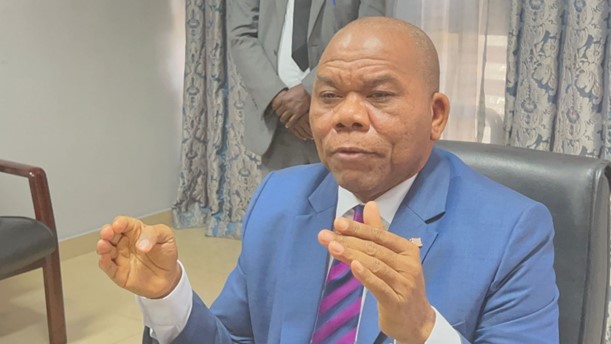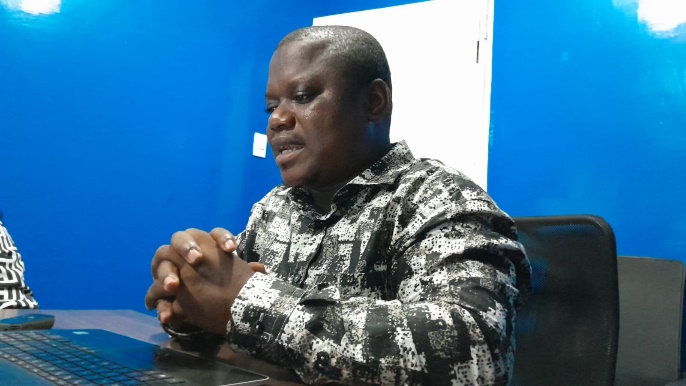The Guaranty Trust (GT) Bank Liberia Limited has again taken Kailondo Petroleum Incorporated and Cllr. George B. Kaiolondo to court for allegedly refusing and neglecting to pay the sum of US$1,231,521.01 several months after the due dates expired.
The bank submitted an eight-count complaint against Cllr. Kailondo and his company, praying that the court registers a final judgment finding the co-defendants liable to the plaintiff in the sum of US$1,231,521.01, inclusive of the stipulated interest rate and legal costs in the proceedings, and order the co-defendants to pay the sum sued for and grant unto the plaintiff any and all further relief deemed proper, equitable and legal under the given circumstances.
According to the plaintiff’s complaint filed at the Debt Court by the International Law Group, several demands were made to the co-defendants, Kailondo Petroleum Inc. and Cllr. George B. Kailondo, Sr., to pay the aggregate outstanding amount due on account of a September 2017 Novation Agreement, that is US$839,514.51, representing balance on the Restructure Novation Agreement; US$235,384.11 representing balance due on the LC’s default charges on the sub-account; and US$6,480.38, representing account maintenance charges accrued on the current account, amounting to the total of US$1,081,379.05, plus interest rate and legal costs, in keeping with law, but all the demands fell on deaf ears.
However, documents into the matter accessed by the Hot Pepper revealed that GT Bank has confirmed making illegal withdrawals from Kailondo’s account to the tone of US$510,000 (five hundred and ten thousand United States dollars). The bank, according to the documents, also observed, arguably in the affirmative, Kailondo Petroleum’s queries regarding the outstanding amount owed as its loan obligation to the bank.
According to Cllr. Kailondo, he made several payments against his debt with the GT Bank, both in cash and fuel and gas, and that the amount he owes the bank is in the tone of US$377,000 (three hundred seventy-seven thousand United States dollars), with no interest or default charges.
Documents in the possession of the Hot Pepper prove that Kailondo made a payment of US$291,047.53 during the novation period, US$93,208.11 on restructure of loan and US$30,616.40 in fuel and gas (US$15,646.90 in fuel and US$14,969.50 in gas). These amounts sum up to US$414,872.04 (four hundred fourteen thousand eight hundred seventy-two dollars and four cents).
According to defendant Kailondo, after making all these payments on August 26, 2020 he received a letter from Heritage Partners and Associates Inc. under the headline, “Mortgage Demand Notice”, stating that they were legal counsels for GT Bank who had referred Kailondo Petroleum account to them with instructions to collect from Kailondo Petroleum the total outstanding and unpaid balance of US$1,106,905.30 (one million one hundred and six thousand, nine hundred five dollars and thirty cents).
According to Cllr. Kailondo, owing to the letter received and being fully aware that he had settled over half of his indebtedness to the GT. Bank, he requested the audit and reconciliation of his account.
The audit and reconciliation of the account were made, and documents provided by the auditors show that GT Bank made unauthorized withdrawals of approximately US$939,852.26 from the Kailondo Petroleum’s account.
After the audit, and realizing that his account was being defrauded, Kailondo dragged GT Bank to court.
In a letter addressed to Dr. Jallah A. Barbu and legal counsel of Kailondo Petroleum Incorporated, referenced, “Post-Reconciliation Exercise-Kailondo Petroleum Accounts”, the Guaranty Trust Bank made effort to respond to the claims made by Kailondo, noting that it was unable to find copies of several documents involving the loan, including the Letter of Credit (LC) Agreement, Offer Letter, etc.
Though the case ended and the court ruled in favor of Kailondo Petroleum Incorporated, Guaranty Trust Bank is still venturing with another lawsuit to have Kailondo and his company hooked for allegedly not fully repaying the loan. To be continued.







